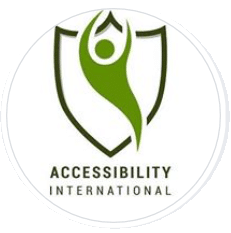The rights of applicants and employees with disabilities are protected by law. Employers need to be aware of the kinds of communications and actions that could be considered discriminatory so that they don’t knowingly or unknowingly violate those rights.
The Americans with Disabilities Act (ADA) prohibits discrimination on the basis of disability in several spheres of life. Title I of the ADA, which applies to businesses with 15 or more employees and to state and local governments, makes it illegal for an employer to discriminate against a “qualified individual” in all aspects of employment, including in the application and interview processes. Other laws, like the Rehabilitation Act of 1973, prohibit the same for federal and other employers.
A “qualified individual” is defined in the ADA as meaning “an individual who, with or without reasonable accommodation, can perform the essential functions of the employment position that such individual holds or desires.”
So, what questions can employers actually ask in an interview or during the application process, and what questions are off the table?
Please note: The following information addresses acceptable questioning before an offer of employment has been made. What an employer can and can’t ask following employment offers or during employment may be different.
Disability and medical questions
Employers may not ask if an applicant has a disability, or about the nature or severity of a disability. They also may not require a medical exam before a job offer. Questions or actions that can be used to determine if an applicant has a disability or make assumptions about an individual’s ability to perform a job based solely on the presence of a disability or medical condition are prohibited.
The U.S. Equal Employment Opportunity Commission (EEOC) and related state and local enforcement agencies enforce discrimination in employment.
Questions like these are not allowed, according to the EEOC, even if a disability or perceived disability seems obvious:
- Do you have a disability?
- What medications are you currently taking?
- Have you filed any workers’ compensation claims?
Reasonable accommodations and ability to perform a job
Employers are permitted to ask certain types of questions about an applicant’s ability to perform the essential functions of a job. They are also required to provide reasonable accommodations to qualified applicants and employees with disabilities – unless doing so would impose undue hardship – that would allow them to participate in obtaining and performing a job.
As such, employers may ask applicants if they can perform the essential functions of the job, with or without reasonable accommodation. They may also ask about the nature of the accommodations and how an applicant will perform the duties of the job, with or without reasonable accommodation.
Questions like these that focus on one’s ability to perform a job, but don’t pry into an applicant’s ability to perform other life activities, would normally be allowed:
- Can you perform the essential functions outlined in the job description, with or without reasonable accommodation?
- Can you describe how you would perform the main duties of the job, with or without reasonable accommodation?
- Can you provide detail or resources to help us understand your requested accommodation and our options for meeting that accommodation?
Questions like these that focus on a disability or medical condition would not be allowed:
- Can you walk?
- Are you taking any prescription drugs?
- How did you become blind?
“Reasonable accommodation,” as described in the ADA, may include: (A) making existing facilities used by employees readily accessible to and usable by individuals with disabilities; and (B) job restructuring, part-time or modified work schedules, reassignment to a vacant position, acquisition of equipment or devices, appropriate adjustment or modifications of examinations, training materials or policies, the provision of qualified readers or interpreters, and other similar accommodations for individuals with disabilities.




